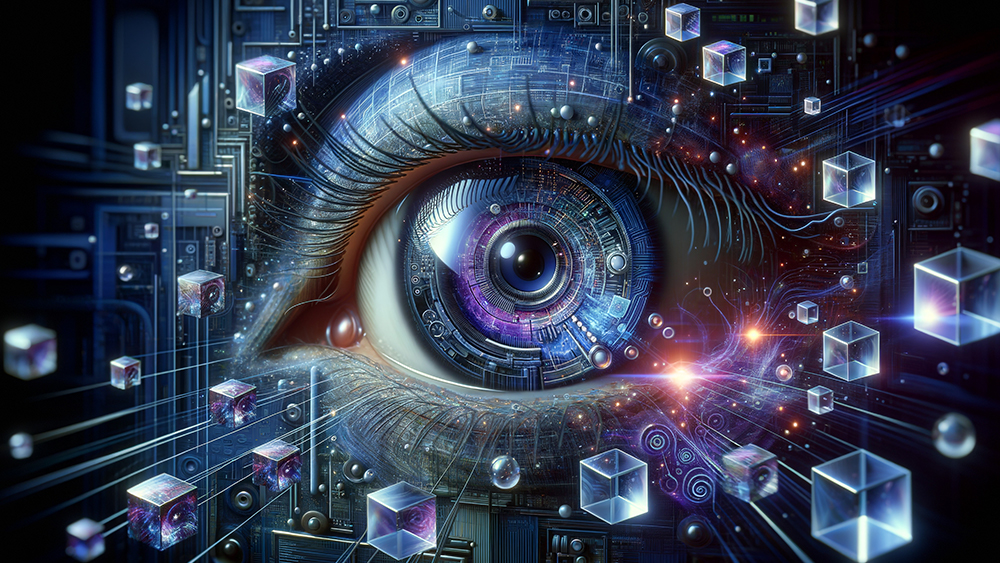Skepticism surrounds claims that AI can cure cancer amid $500 billion tech initiative
01/23/2025 / By Willow Tohi

- President Donald Trump announced the $500 billion Stargate project to build AI infrastructure, including massive data centers, aimed at revolutionizing healthcare and curing diseases like cancer.
- Tech leaders, such as OpenAI and Oracle CEOs, claim AI can accelerate disease cures and enable early cancer detection through advanced blood tests and personalized mRNA vaccines.
- Health experts and natural health advocates express skepticism, arguing that curing cancer requires lifestyle changes and addressing environmental factors, not just technological advancements.
- The Stargate project promises to create around 100,000 jobs and ensure U.S. dominance in the global AI race, while critics debate the feasibility of AI solving complex health issues like cancer.
- The debate over AI’s role in healthcare highlights the need for a balanced approach, combining technological advancements with lifestyle changes and environmental reforms to address cancer and other diseases.
President Donald Trump unveiled a $500 billion artificial intelligence (AI) infrastructure project Tuesday, flanked by executives from OpenAI, SoftBank and Oracle, who boldly claimed the initiative could revolutionize healthcare and even cure cancer. The project, dubbed Stargate, aims to build massive data centers in Texas and beyond, with promises of job creation and technological dominance over global competitors like China.
But as the tech titans extolled the potential of AI to eradicate diseases, skepticism grew among health experts and advocates of natural, preventive approaches to cancer. While AI may enhance diagnostics and research, critics argue that curing cancer requires more than algorithms and data centers — it demands a fundamental shift toward healthier lifestyles and environmental reforms.
“These world-leading technology giants are announcing the formation of Stargate,” Trump said during the White House announcement. “So put that name down in your books, because I think you’re going to hear a lot about it in the future — a new American company that will invest $500 billion at least in AI infrastructure in the United States.”
AI and cancer: A bold claim
OpenAI CEO Sam Altman went further, suggesting that AI could accelerate the cure for cancer and other diseases. “We will see diseases get cured at an unprecedented rate. We will be amazed at how quickly we’re curing this cancer and that one — and heart disease,” Altman said. “AI will cure diseases at a rapid, rapid rate.”
Oracle CEO Larry Ellison elaborated on how AI could transform cancer detection and treatment. “Little fragments of those [cancer] tumors float around in your blood. So you can do early cancer detection. If you can do it using AI, you can do early cancer detection with a blood test and using AI to look at the blood test,” Ellison explained. He added that AI could help design personalized mRNA vaccines for cancer patients within 48 hours.
While these claims sound groundbreaking, health experts caution against overhyping AI’s capabilities. AI is a tool, not a miracle cure. Cancer is a complex disease influenced by genetics, environment and lifestyle. No amount of AI can replace the importance of prevention through healthy living, reducing exposure to carcinogens, and early detection through proven methods.
Debate over AI’s role in healthcare intensifies
Critics of the AI-driven healthcare narrative argue that the focus should remain on addressing the root causes of cancer, such as poor diet, lack of exercise, smoking and environmental toxins. According to the World Health Organization, at least one-third of cancer cases are preventable through lifestyle changes.
Skeptical, natural health advocates acknowledge that AI might help us analyze data faster, but claim it won’t change the fact that we need to eat better, move more and reduce our exposure to harmful chemicals. Health—and cancer—are states within a living body, not determined by technology. It would be dangerous to put that kind of faith in technology.
The Stargate project, which includes plans for 10 data centers in Texas with potential expansion to 20, has been hailed as a job creator and a step toward securing America’s technological future. Trump estimated the initiative would create around 100,000 jobs and ensure U.S. dominance in the global AI race.
SoftBank CEO Masayoshi Son echoed Trump’s optimism, calling the initiative the “beginning of the golden age of America.” He added, “Artificial super intelligence will come to solve the issues that mankind never, ever have thought that we could solve.” But for many, the promises of AI curing cancer remain speculative at best.
As the Stargate project moves forward, the debate over AI’s role in healthcare continues to intensify. While the initiative may advance technological innovation, its ability to deliver on lofty promises like curing cancer remains to be seen. For now, experts agree that the best defense against cancer is still a healthy lifestyle — a solution no algorithm can replace.
Sources include:
Submit a correction >>
Tagged Under:
AI, artificial intelligence, big government, Big Tech, cancer cures, computing, cyber war, cyborg, future science, future tech, Glitch, healthcare, information technology, inventions, mRNA, Oncology, rational, robotics, robots, Sam Altman, skeptics, tech giants, technocrats, technology, Trump
This article may contain statements that reflect the opinion of the author





















